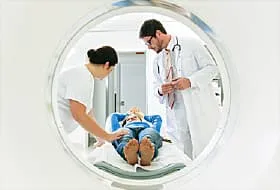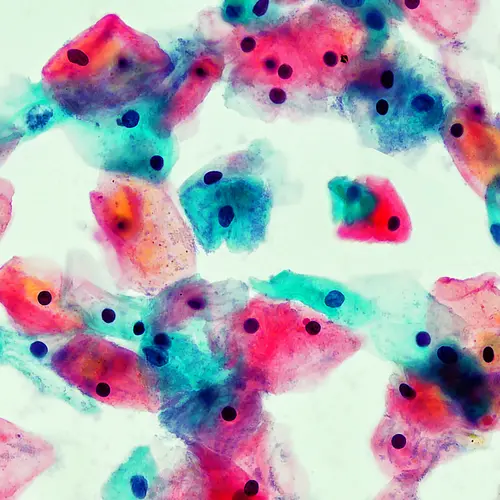A computed tomography (CT) scan is a test your doctor might use to look for a problem inside your body, plan your surgery, or check how well a treatment is working for you. It uses powerful X-rays, a form of radiation, to create detailed pictures of the inside of your body.

Your doctor will make sure that the benefits you’d get from the scan outweigh the drawbacks before they recommend it for you.
Radiation During a CT Scan
CT scans use X-rays, which are a type of radiation called ionizing radiation. It can damage the DNA in your cells and raise the chance that they'll turn cancerous.
These scans expose you to more radiation than other imaging tests, like X-rays and mammograms. For example, one chest CT scan delivers the amount in 100 to 800 X-rays. That might sound like a lot, but the total amount you get is still very small.
It’s important to know that everyone is exposed to ionizing radiation every day, just from natural radioactive material in their surroundings. In a year, the average person gets about 3 millisieverts (mSv), the units that scientists use to measure radiation. Each CT scan delivers 1 to 10 mSv, depending on the dose of radiation and the part of your body that's getting the test. A low-dose chest CT scan is about 1.5 mSv. The same chest scan at a full dose is about 8 mSv.
The more CT scans you have, the more radiation exposure you get. But that shouldn't stop you from getting them if your doctor says you need them.
Will It Lead to Cancer?
What are the chances that the X-rays from a scan will end up causing a problem? It depends on your age, gender, and the part of your body that's being scanned. Overall, your odds are very low -- the chance of getting a fatal cancer from any one CT scan is about 1 in 2,000.
Some organs are more sensitive to radiation than others. It tends to do more damage to cells that grow and divide quickly. The breasts, lungs, thyroid gland, and bone marrow all have fast-dividing cells, so they are more sensitive than other body parts, like the brain.
The possibility of cancer is slightly higher in women than in men. It's also higher in kids, because they're growing and their cells are dividing faster than those in adults. Children also have more years ahead of them in which they could get cancer from radiation.
How Can You Protect Yourself?
You don't need to stop getting CT scans. But it’s a good idea to make sure you need each one you get.
Before you have any imaging test, ask your doctor these questions:
- Why do I need this scan?
- How will it affect my treatment?
- What are the risks?
- Could you diagnose me with a test that doesn’t use radiation, like an MRI or an ultrasound?
- How will you protect the rest of my body during the CT scan?
Your doctor should use the smallest possible dose of radiation to do the scan -- especially if you need to have several of them. Ask if the technician can shield the parts of your body that don’t need the test with a lead apron. This will block the X-rays from entering those areas.
Keep a record of the CT scans and other X-rays you have, so you'll know how much radiation you're getting. It will also prevent you from repeating a test you've already done.
Write down:
- The type of scan
- The date you had it
- The dose of radiation you got
- The name of the facility where you had the test
If you're still concerned about radiation from a CT scan, you can always get a second opinion. Another doctor might be able to recommend other testing options.
